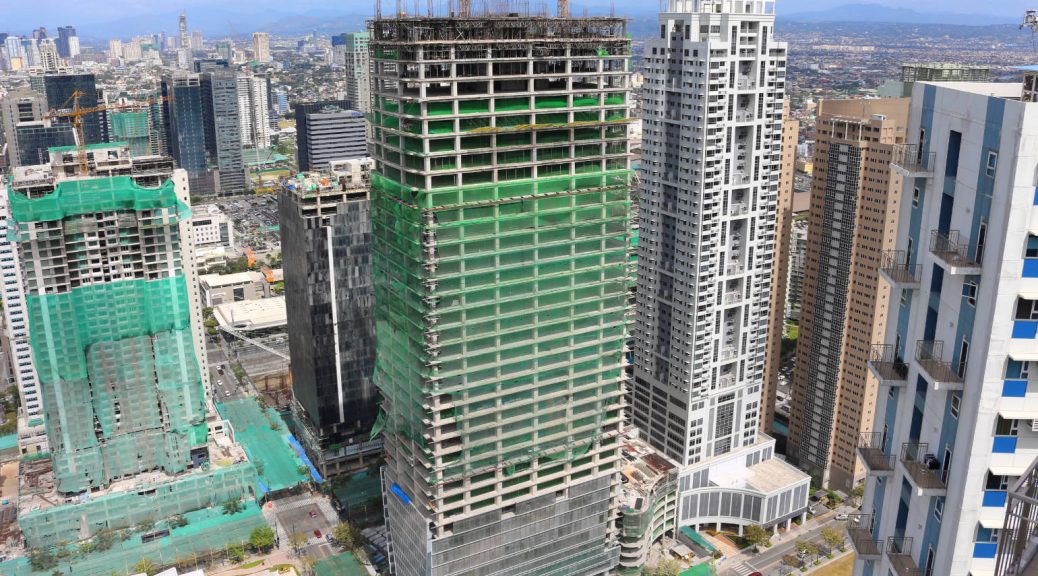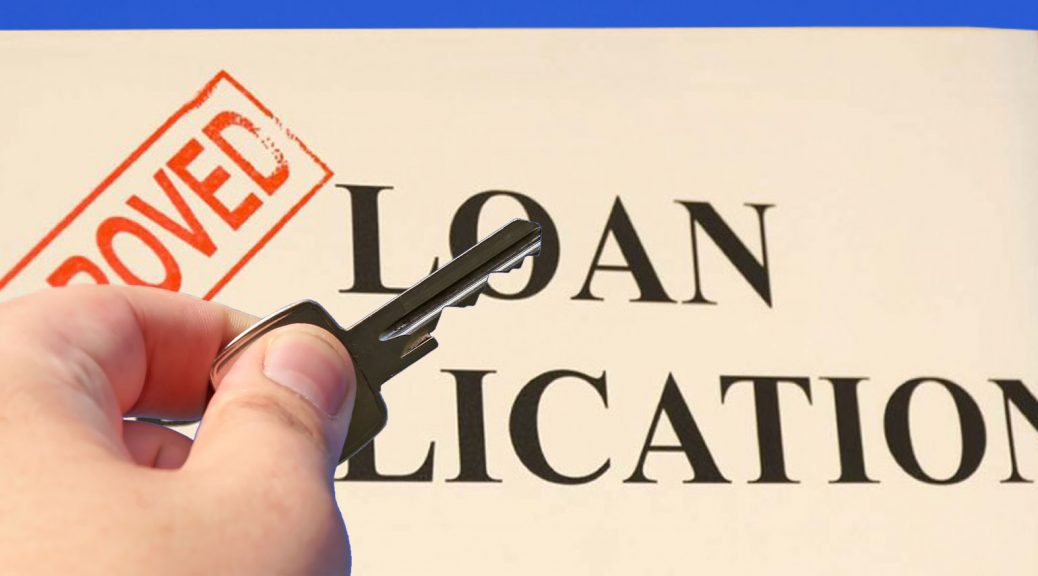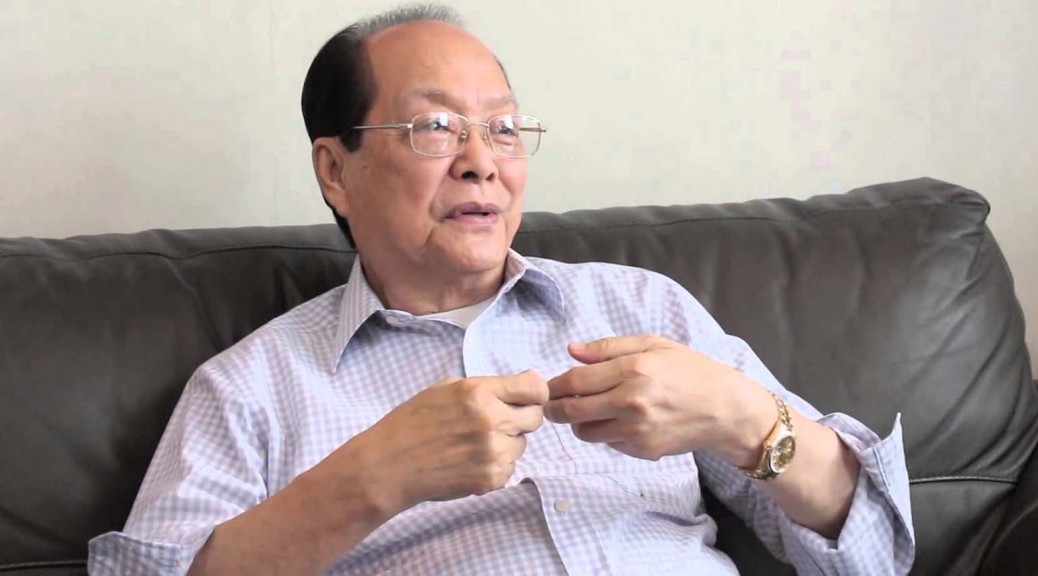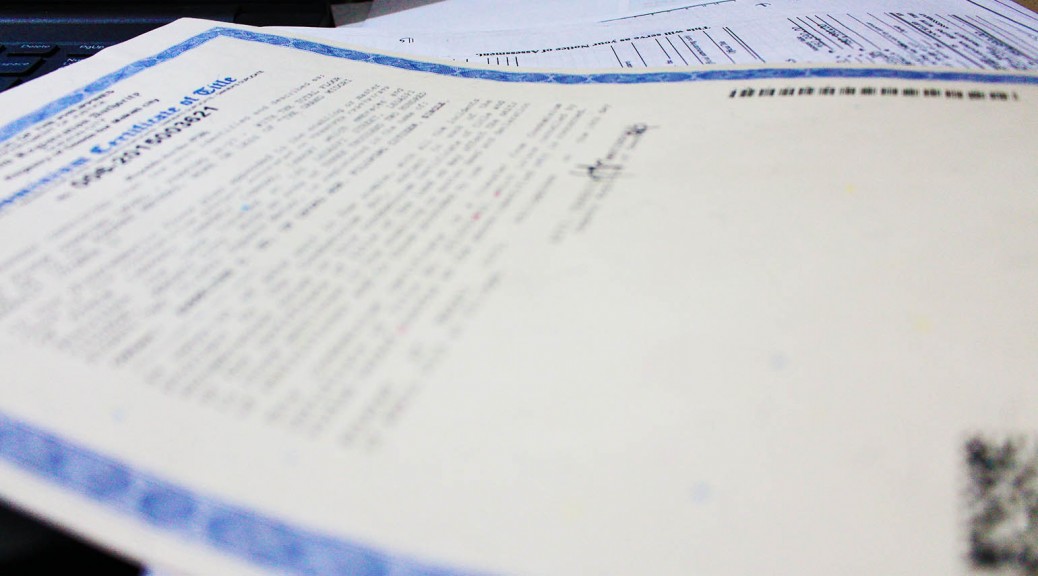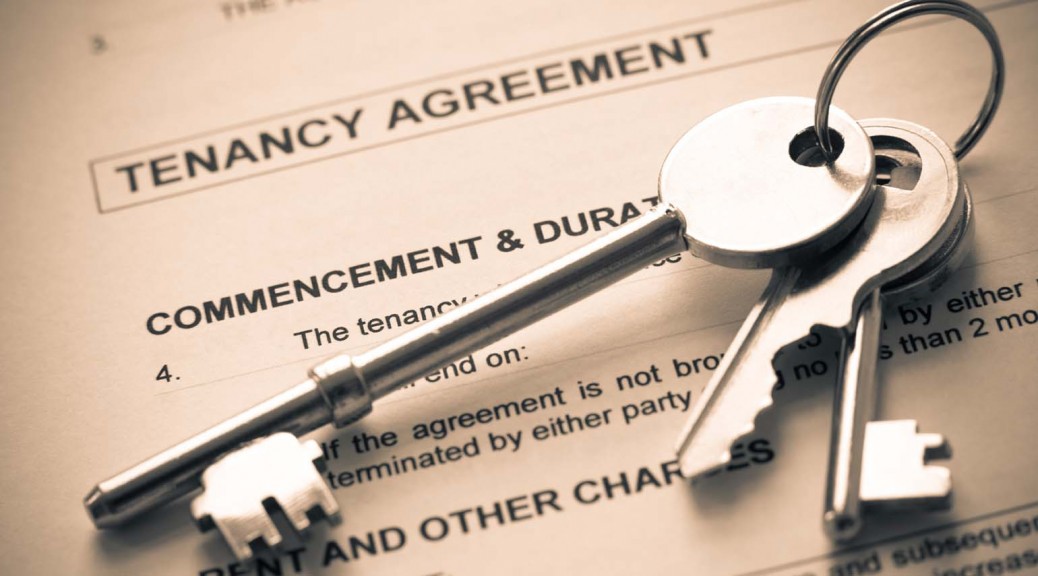
Rent Control Act of 2009 (RA 9653): What Landlords and Tenants Need to Know
Are you a landlord? Or a tenant? You might have heard that the Rent Control Act of 2009 has been extended again, this time until December 31, 2020. This law is beneficial for both landlords and tenants because it protects both parties from conflicts when it comes to fulfilling each other’s obligations.
In this post, let us highlight the important provisions that both parties should be familiar with for their own good.
But first, let’s look at the numbers…
A study conducted by the Statistical Research and Training Center (SRTC), a sub-agency of the National Economic and Development Authority (NEDA) showed in its preliminary results that about 7.2% of households in the country are renters. From this percentage, about 97% pays a rent equivalent to ten thousand pesos and below.
This is a considerable number of people; which prompted the creation of the Republic Act (RA) No. 9653, also known as the Rent Control Act of 2009.
Important terms defined:
R.A. 9653 defines rent as the amount paid for the use of a residential unit which is usually paid on a monthly basis unless otherwise specified in a contract.
Residential units on the other hand are defined as either a separate dwelling place or part of a bigger multi-dwelling place.
Buildings and apartments used for business but at the same time serves a residence to its tenants are considered as residential units except for motels, motel rooms, hotel, and hotel rooms.
Coverage of this law:
This act applies to residential units in the National Capital Region and other highly urbanized cities which rent at or below ₱10,000; and ₱5,000 or below in all other areas in the country.
The Rent Control Act of 2009 does not cover units under a rent-to-own scheme since a separate agreement for this is made between the owner and the tenant.
The limit on increase of rent amount:
The Rent Control Act of 2009 (R.A. No. 9653) states that the lessor or the landlord is not allowed to increase the rent more than seven (7) % annually if the unit is occupied by the same tenant. The lessor is only allowed to change the rate for new tenants once the unit becomes vacant.
Further, landlords whose units are dormitories, bed spaces, or boarding houses that are rented to students are only allowed to increase the rent once a year.
Advances and deposits:
Stipulation on deposits and advances has also been included in The Rent Control act of 2009 which further states that a lessor cannot demand from the tenant more than one (1) month advance rent and more than two (2) months deposit. Any accumulated interest of the deposit shall be returned to the tenant upon expiration of the rental agreement.
However, this amount may be forfeited in instances where the tenants failed to settle outstanding utility bills such as electricity and water. This amount may also be forfeited and used to pay for damages done by the tenant to the property.
Subleasing guidelines:
The act also addresses issues on subleasing. It provides that a tenant is not permitted to sub-lease the unit without a prior written consent from the landlord. Doing such may be used as reasonable ground to evict the tenant from the rented unit.
Grounds / reasons for eviction:
Aside from subleasing without the owner’s consent, other valid reasons for eviction are as follows:
-
If the tenant fails to pay the required monthly rent for a total three (3) months.
In cases where the landlord refuses to accept the payment, the tenant may deposit the payment by way of consignation to the appropriate court, or with the city treasurer, the local barangay chairman, or deposit the amount to the landlord’s bank account within one (1) month after the landlord’s refusal.
The tenant should also deposit the rent within ten (10) days of every current month afterwards.
-
If the owner/lessor or his immediate family members have a legitimate need to use the unit. However, the following conditions also apply:
- Provided the rent for a definite period has expired. i.e. 1 month, if the rent is collected monthly or 3 months, if the rent is collected quarterly, etc.
- Provided the owner has given the tenant 3 months advance notice. This should give the tenant enough time to look for another place.
- The owner is not allowed to lease the unit to any third party for at least 1 year.
-
If the unit is the subject of an order of condemnation by appropriate authorities and the owner/lessor needs to do necessary repairs to make the property safe and livable. The following conditions apply for this:
- The evicted tenant should be given the first priority to rent the unit back after the repairs.
- If the landlord raises the rent, the new rate should be reasonably proportionate with the expenses incurred for the repair.
- But if the unit has been condemned or completely demolished instead, and a new building is built on the same site, the evicted tenant no longer needs to be given the first priority for renting the new building or any of the unit(s) therein.
- Expiration of the lease/rental contract.
In instances where the property has been sold or mortgaged to another owner, the new owner cannot evict the existing tenant(s) just because he is the new owner. The new owner still has to follow the above provision on evictions.
Penalties for violations:
Persons, whether natural or juridical, who are found to have violated any of the provisions of this Act will be subject to a fine of not less than ₱25,000 but not more than ₱50,000.00, or imprisonment of not less than one (1) month and one (1) day but not more than six (6) months, or both.
Validity period of this Act:
The Rent Control Act of 2009 has been signed into law on July 14, 2009 and should have expired on December 31, 2013 but it was extended up to December 31, 2015 by the Housing and Urban Development Coordinating Council (HUDCC) under the direction of the current vice president, Jejomar Binay.
Update: On June 8, 2015, the HUDCC further resolved to extend the effectivity of R.A. No. 9653 up to December 31, 2017:
x x x x xTHEREFORE, BE IT RESOLVED, AS IT IS HEREBY RESOLVED THAT the HUDC Council, pursuant to its mandate enshrined in RA No. 9653, implements the continued regulation of rent to cover all private residential units in the country with monthly rent of Php10,000 subject to the following conditions:
After the expiration of RA No. 9653 or the Rent Control Act of 2009 on 31 December 2015, rent control shall continue for a period of two years or from 01 January 2016 to 31 December 2017 using the inflation rate for 2014 of 4.1 % as basis for adjustment.
x x x x x
Full version:
You can read the full version / copy of the original signed Act below:
Do you need help getting your unit or residential/commercial property rented?
Phil. Property Expert, Inc. offers property marketing and management services.
Disclaimer: The information in this post is not meant as legal advice and should not be taken as such. See our full legal disclaimer.
-
Riomin Manito
-
Nimrod Flores
-
meng
-
reyman
-
-
-
-
Nimrod Flores
-
Joe Acosta
-
Nimrod Flores
-
-
Luz Reyes
-
Willie
-
-
Cezar Nabong
-
Magicpips
-
reyman
-
-
Jeane Tongson
-
Rose
-
reyman
-
-
Layne
-
Jake Edgar
-
reyman
-
-
josie
-
reyman
-
-
UP STUDENT
-
Leona Beatriz
-
-
Mylife MyRules
-
reyman
-
-
Chris
-
reyman
-
-
Mona
-
reyman
-
Dan Henric Puertollano
-
Nimrod Flores
-
-
-
-
Glance Macadangdang
-
reyman
-
-
gerson arano
-
reyman
-
-
bhernz
-
michellyn cabatuan
-
Nimrod Flores
-
-
lei
-
reyman
-
-
Rhaz
-
Nimrod Flores
-
-
mike enriquez
-
reyman
-
-
mike enriquez
-
Nimrod Flores
-
-
Annalyn Villeza
-
Nimrod Flores
-
-
김레아 진
-
Nimrod Flores
-
-
norman borja
-
Nimrod Flores
-
-
Jean
-
Nimrod Flores
-
Ella Cruz
-
-
-
Cristine Irish Montero
-
Cristine Irish Montero
-
Nimrod Flores
-
-
AJ
-
Reporterfreebies
-
Nimrod Flores
-
Reporterfreebies
-
Nimrod Flores
-
-
-
-
Sukinok v.
-
Nimrod Flores
-
-
Real Mayordo
-
Nimrod Flores
-
Real Mayordo
-
Nimrod Flores
-
Real Mayordo
-
-
-
-
-
Jay Joven
-
Coro Kuririn
-
Richard Allen Yuzon
-
I Am
-
jaci
-
Kath
-
Nimrod Flores
-
-
Mai Requilman
-
Nimrod Flores
-
Mai Requilman
-
Andres
-
Nimrod Flores
-
-
-
Andres
-
-
simplyme_here
-
Nelle
-
Nimrod Flores
-
Nelle?
-
-
-
Alden Lacsamana
-
reyman
-
-
Jericho
-
orc_kid
-
orc_kid
-
jc
-
Carmi De Azzo
-
-
Jessieca Mae Linehan
-
M. Hertrich
-
M. Hertrich
-
Brian Kendall
-
Brian Kendall
-
-
Brian Kendall
-
Ella Cruz
-
-
Lynn Sapaula
-
Carmi De Azzo
-
-
Oel
-
Jennilyn Hunt
-
Carmi De Azzo
-
-
Ching Villaver
-
reyman
-
-
Terrence de Vera
-
Carmi De Azzo
-
dana
-
-
-
Ella Cruz
-
Marisa
-
Ehm Solomon
-
roselyn caracas
-
Kit Siendo-Arlante
-
Kenneth Ellar
-
Ritzy Ritz
-
Benedict
-
-
June Laurel
-
Benedict
-
-
lala
-
Ritzy Ritz
-
Benedict
-
-
Jake
-
Ritzy Ritz
-
Jen B Fabriga
-
Benedict
-
Jen B Fabriga
-
-
-
Nene Gonzales
-
Bessie Galila
-
Benedict
-
mr.yosong pogi mirvin26
-
-
Ritzy Ritz
-
Benedict
-
-
P Cee
-
Theresa Silvela
-
mr.yosong pogi mirvin26
-
Theresa Silvela
-
mr.yosong pogi mirvin26
-
Theresa Silvela
-
-
-
-
-
Glance Macadangdang
-
Inah Desario
-
-
dana
-
GIRLY SUPER
-
-
Karen joy jimenez
-
McRupert Onrejas
-
Max Ranada
-
Josef Gonzales
-
Benjamin
-
Gonzales Andrea
-
Inah Desario
-
-
asereht
-
ruth
-
Leverly Tuba-Bernabe
-
jomie villaronte
-
Nimrod Flores
-
jomie villaronte
-
-
-
Rian
-
Nimrod Flores
-
-
Shiela
-
Nostrebor Lim
-
reyman
-
-
Kirsten Santiago
-
reyman
-
-
selena mefford
-
Regine Mia
-
mary
-
mizry papuonognea
-
Albert Gatdula
-
Inah Desario
-
Imontheytside
-
gigi llanes
-
-
-
-
Jenny
-
reyman
-
-
chineseme
-
DIONNA CRIMMINS
-
Katrina Jane So
-
Katrina Jane So
-
Graham John Catchlove
-
reyman
-
Inah Desario
-
-
-
sydney de castro
-
Joe JA
-
Mado2016
-
reyman
-
-
[email protected]
-
reyman
-
-
Juan Self
-
reyman
-
Juan Self
-
-
-
Xj Fernandez
-
reyman
-
Imontheytside
-
-
-
John
-
Aileen Hope Julian
-
reyman
-
-
Mark Blancaflor
-
AYALA LAND Updates
-
Nimrod Flores
-
-
Lynn Corog
-
ton
-
ton
-
reyman
-
-
Laryl
-
Ian
-
Inah Desario
-
-
jie05jr
-
Abel John
-
reyman
-
-
euka miah
-
reyman
-
-
Rain
-
carlo dela cruz
-
Nash Igiesca
-
avisala
-
dioer19
-
Nimrod Flores
-
Mae ann
-
-
-
Jblue
-
Heidie
-
Jhoshua Heart Chinitah Bratine
-
ladylee
-
Nicee Mortega
-
Nimrod Flores
-
-
Cypriano Alleba
-
Hanika Bartolome
-
Rose
-
Romeliza B. Roldan
-
Anakat Quinn
-
-
luisa
-
vivianne gay masangkay
-
-
Alfredo Estabillo
-
Josefina
-
Nimrod Flores
-
JGEscapades
-
Nimrod Flores
-
-
Bawal Lumabas
-
-
-
JT
-
Mae Carbonel
-
Abigaile
-
petterlion computers
-
Edel Nachor
-
nina natasha Gagarra
-
Weishun Zhang
-
lovemyhusband
-
Jenny Coderis
-
ronald timbol
-
G.R. Soni
-
-
Shol Tolentino
-
Neddy
-
G.R. Soni
-
Rey Dosdos
-
-
-
Rjhay Torres
-
Jureane Ynzon
-
Raven Valmera Sun
-
dondon balsicas
-
laiza molina
-
Angel Beltran Benitez
-
-
Rona Grace Lapurga
-
cheroselyn rush
-
Romancing
-
Nimrod Flores
-
-
Duday Alcano Lopez
-
Sterne
-
-
Arlene Bas
-
Marissa Loilo
-
Steven Goodman
-
Paolo Apollyon
-
Nimrod Flores
-
-
Maria Jaira Chavero
-
Nimrod Flores
-
-
Mitch Garing
-
Mark Anthony
-
Nick
-
maicka cruz
-
Eric Bartolome
-
Nimrod Flores
-
Arlone Manalad
-
Nimrod Flores
-
-
-
-
Eric Bartolome
-
Nimrod Flores
-
-
Khissy
-
Nimrod Flores
-
Khissy
-
Nimrod Flores
-
-
-
-
Annaliza Cruz
-
Glenn Chua
-
Sterne
-
Ellie
-
-
I am Macoy
-
-
Jake
-
maria cerina Verano
-
Sterne
-
-
Emerson
-
Luz
-
Sterne
-
Luz
-
Sterne
-
-
-
-
May Ann
-
Sterne
-
hazel anne
-
Sterne
-
-
-
-
jenny
-
Sterne
-
-
Mr Ahmad Zuhdy
-
Anonymouslyfurious
-
Sterne
-
-
Mccy
-
Sterne
-
Mccy
-
Sterne
-
Nimrod Flores
-
-
-
-
andrew smith
-
Sterne
-
Nimrod Flores
-
-
-
Maribeth Malihan
-
Nimrod Flores
-
Maribeth Malihan
-
mariya lim
-
Sterne
-
-
-
-
dezi tolentino
-
andrew smith
-
Nimrod Flores
-
-
Emerson
-
Charlene
-
Sterne
-
-
rara
-
Sterne
-
-
Pete Roces
-
Sterne
-
-
andrew smith
-
Sterne
-
-
adz Vergara
-
Charlene Chong
-
Sterne
-
-
Don Emil
-
Sterne
-
-
Jeca
-
Sterne
-
-
IamMamavee Ligasan
-
Mark Ellis Cortez
-
Sterne
-
-
Heidi Salomon
-
Sterne
-
-
Jon Cajes
-
Sterne
-
-
JP
-
Sterne
-
-
andrew smith
-
Sterne
-
-
Rey Dosdos
-
Sterne
-
-
danalyn lacanlale
-
Sterne
-
-
Jeremy Anne
-
Sterne
-
Jeremy Anne
-
Sterne
-
-
-
-
sarah
-
Sterne
-
-
Gerhard
-
philantrophy_zephyr
-
-
philantrophy_zephyr
-
Sterne
-
Sterne
-
hazel anne
-
Sterne
-
-
-
-
jeff Hernandez
-
Ma Cristina Duavis
-
Sterne
-
-
Erika
-
Nayarada Sinned
-
Sterne
-
-
Jha Cauilan
-
SSY
-
Sterne
-
-
Bianca Lee
-
Ei A
-
Sterne
-
Ei A
-
-
-
Sterne
-
-
Rb Arcie
-
Jon
-
Sterne
-
-
Emerson
-
Sterne
-
-
Elizabeth Panganiban
-
Sterne
-
-
Sweet Crazy
-
Jon Flores
-
Sterne
-
-
Mel S. Baliza-Valiente
-
Sterne
-
-
Inday Almendrala Hojas
-
Sterne
-
-
Eon Toteynz
-
Sterne
-
-
Chel
-
Sterne
-
-
shugar
-
Sterne
-
-
Glenn Hetterick
-
Justin Balagtas
-
Sterne
-
Justin Balagtas
-
-
-
Matt
-
Sterne
-
-
Felix Wahing
-
Felix Wahing
-
Sterne
-
-
-
Dafodil
-
Sterne
-
Dafodil
-
Sterne
-
-
-
-
Emz
-
Sterne
-
Emz
-
Sterne
-
Emz
-
Sterne
-
Emz
-
Sterne
-
Emz
-
Sterne
-
Emz
-
-
-
Emz
-
-
-
Ria
-
Enna-Esor Esor
-
Marc V Dermenjian
-
nana
-
ramilly
-
Nimrod Flores
-
-
ramilly
-
Nimrod Flores
-
ramilly
-
Nimrod Flores
-
John
-
-
-
-
-
Luzviminda Mico
-
Nimrod Flores
-
-
nana
-
nana
-
Nimrod Flores
-
nana
-
-
-
TJ King
-
Sterne
-
-
MJay
-
Richard Retuya
-
Anna Amores
-
Sterne
-
-
Jiro Martizano Marasigan
-
Mark Larry Sanchez Saquing
-
Sterne
-
Nimrod Flores
-
King Leoric XI
-
-
-
Annie Herrera
-
Sterne
-
Annie Herrera
-
Sterne
-
-
-
-
Rodolfo
-
Romelyn Zapanta
-
Lito Tabuldan
-
Mia Mabait
-
Ashu Rin
-
Rosemarie V. Alix
-
Vanessa C. Rita
-
shugar
-
dhel secson
-
John Paul Ladia
-
Leo Christo Dela Rosa
-
JF
-
shu
-
shu
-
Ga May
-
mike
-
Jennicar Liwanag Perez
-
Jemae
-
Suzanne Angelic
-
Dom Perignon
-
tim
-
I am Macoy
-
Sharon Rama Haas
-
Medusa
-
Sterne
-
-
Dada Reontare
-
Irishcel Domanico
-
Manny
-
Anne Manansala
-
Lynna Lacosta
-
Katrina Jasmine Co
-
zhei
-
Sterne
-
-
Alida Pineda
-
Sterne
-
-
Khai
-
Sterne
-
-
Maria Melanie Alfonso
-
Nica
-
Niña Loraine Silungan
-
Alfreda Santos
-
Sterne
-
-
rose
-
Free Application
-
Free Application
-
-
Meg
-
Diana may
-
Clifford Mariano
-
Fatima Angelica Perez
-
Free Application
-
-
jonnie regala
-
ivy
-
Migdal El April Lagramada-Anar
-
lorilyn dangilan
-
Alhenne
-
Trisha Escario Pranada
-
JJ Ga
-
bert buquid
-
Oziled Dongski Reivax
-
Oziled Dongski Reivax
-
Frances
-
Tony
-
Rico Eustaquio
-
Arvin Barandino Camiña
-
Arvin Barandino Camiña
-
Nyrax Pabalan
-
Aday Endrino
-
3K Trikhy TV
-
Rachelle Soriano
-
John rupert
-
coleen legaspi
-
Jen
-
Julius Yoskeboi Ramos
-
Mike Bridges
-
Mike Wahingon
-
Angelo Dimaapi
-
michelle antonio
-
Edjolyn alcantara
-
carl mykel santos
-
Pelet
-
ferlie serandon
-
Aki Red
-
myca majolica concepcion
-
Jiel La Glaize
-
Renz Marion Tolentino
-
Edwin Pan
-
Kim Noval
-
Leo Mendoz Mendoza
-
Leo Mendoz Mendoza
-
Steff
-
Anna
-
Zandro Zamora
-
Jasmine Mary Nicole Leyson
-
Julalee Coloma
-
Jayvee Nieva
-
Jazinda Nigel Salinas
-
Toni
-
Toni
-
-
Bart Montero
-
Marj
-
gemini celestine
-
Yang
-
Audrey Cornelio
-
Mark Pier
-
Romar de Velonza
-
ericka lacanilao
-
Gordon Lawrence
-
Mj
-
teacher motie
-
Novie Kaye Patungan
-
Novie Kaye Patungan
-
-
Ria Herrera
-
Keevin Jaeger Jersey
-
Robert Escobedo
-
-
crif credit
-
Thompson Louis
-
Emy Pangilinan
-
Katrina Perez
-
Fatima Poot
-
Adhiee Asanulla
-
Mariel
-
disqus_q4MuV1G5uc
-
leanneyog21
-
leanneyog21
-
Rofel Anne Morales Alejo
-
Mica Mica
-
rio salas
-
Karl Osorio
-
Thompson Louis
-
mark anthony
-
Jennifer Dela Torre
-
Den Lana
-
tsuyatsuyafan
-
DrakkeN
-
Fatima Anna Co





